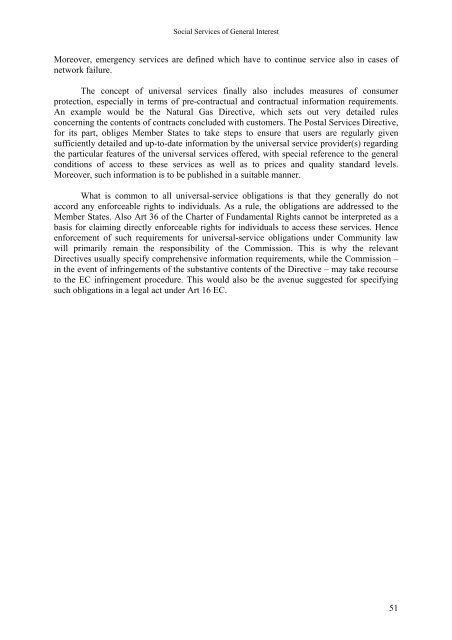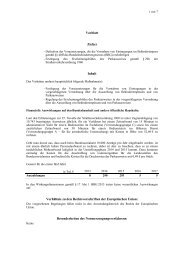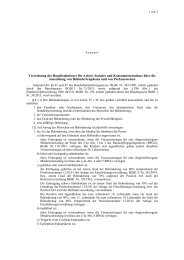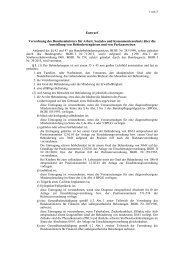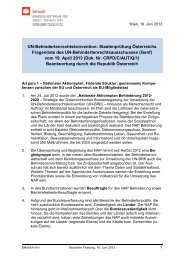Social Services of General Interest (SSGI)
Social Services of General Interest (SSGI)
Social Services of General Interest (SSGI)
Create successful ePaper yourself
Turn your PDF publications into a flip-book with our unique Google optimized e-Paper software.
<strong>Social</strong> <strong>Services</strong> <strong>of</strong> <strong>General</strong> <strong>Interest</strong><br />
Moreover, emergency services are defined which have to continue service also in cases <strong>of</strong><br />
network failure.<br />
The concept <strong>of</strong> universal services finally also includes measures <strong>of</strong> consumer<br />
protection, especially in terms <strong>of</strong> pre-contractual and contractual information requirements.<br />
An example would be the Natural Gas Directive, which sets out very detailed rules<br />
concerning the contents <strong>of</strong> contracts concluded with customers. The Postal <strong>Services</strong> Directive,<br />
for its part, obliges Member States to take steps to ensure that users are regularly given<br />
sufficiently detailed and up-to-date information by the universal service provider(s) regarding<br />
the particular features <strong>of</strong> the universal services <strong>of</strong>fered, with special reference to the general<br />
conditions <strong>of</strong> access to these services as well as to prices and quality standard levels.<br />
Moreover, such information is to be published in a suitable manner.<br />
What is common to all universal-service obligations is that they generally do not<br />
accord any enforceable rights to individuals. As a rule, the obligations are addressed to the<br />
Member States. Also Art 36 <strong>of</strong> the Charter <strong>of</strong> Fundamental Rights cannot be interpreted as a<br />
basis for claiming directly enforceable rights for individuals to access these services. Hence<br />
enforcement <strong>of</strong> such requirements for universal-service obligations under Community law<br />
will primarily remain the responsibility <strong>of</strong> the Commission. This is why the relevant<br />
Directives usually specify comprehensive information requirements, while the Commission –<br />
in the event <strong>of</strong> infringements <strong>of</strong> the substantive contents <strong>of</strong> the Directive – may take recourse<br />
to the EC infringement procedure. This would also be the avenue suggested for specifying<br />
such obligations in a legal act under Art 16 EC.<br />
51


